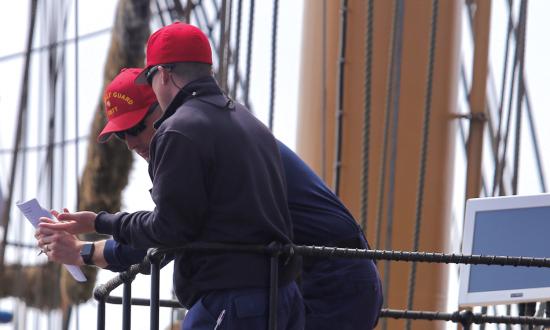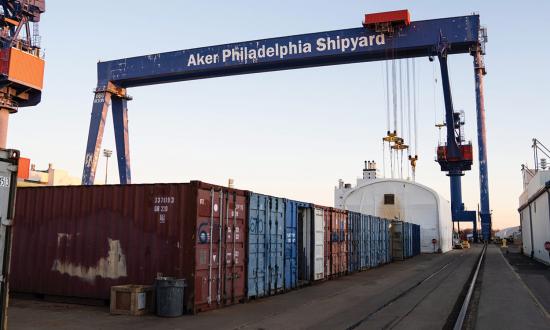The first underway watch always comes with some initial nerves. You worked hard to get there, and you don’t want to disappoint anyone—or worse, lose your qualifications. Junior service members often spend months studying and preparing to protect the ship and her people from disaster. While the stakes are high, there is often a little voice in the back of their minds saying that the chances of something going wrong are slim to none. At least, that’s what I thought on my first watch in September of 2023. The other engineers were making jokes— “Oh boy, this is her first watch, everyone watch out!”—but it was all in good fun. I started my first round with everyone teasing and feigning nervousness. I was confident, albeit a bit inwardly nervous. After all, nothing can go wrong on your first watch.
First Watch
True to expectations, everything was going well when I began my first round of the USCGC Kukui (WLB-203). The machinery was running smoothly, so I left the engine room. Then, I heard screaming over the radio. It could have been anything—a fire, flooding, or entanglement in the machinery—but it was difficult to tell over the roar of the engines. I knew one thing for certain: Something was very wrong. With speed rivaling the devil himself, I raced back to the engine room to find it flooding. There was only myself and one other person trying to block the onslaught of water, and no one knew exactly what was going on. Later, it was revealed that a bolt on a machinery saltwater pipe—the pipe that carries cooling water to the engines—had vibrated loose and fallen out. At that point, there was an unobstructed hole in a pipe, spraying gallons of water a minute into the engine room. We tried slowing the water ourselves, but it kept coming—and fast.
It took less than five minutes for everyone to arrive on the scene after the flooding was reported, but I didn’t realize how long five minutes can be until I had been put in a life-or-death situation in which my boat was attempting to become a submarine. I remember the wave of relief when my superiors came. This was it, I thought, time for the chiefs to take over. After all, I was just a third-class petty officer; my expertise was nothing compared with their years of experience. And yet, they all turned toward me.
It was in that moment that I realized being a leader doesn’t depend on rank; you just need to know what must be done. I sprang into action, directing people to grab the plugging and patching kit. We hammered a plug into the pipe, slowing the flow of water. There was nothing but trust and collaboration toward a common goal: Survival.
Together, we plugged the hole and prevented damage to the engine room. It was a learning experience for everyone, especially me. That day, I learned the Coast Guard is more than a hierarchy based solely on rank; it is a service built on trust and adaptability. When leaders have excellent communication skills, service members will follow them through dangerous, high-stress situations. However, rank alone does not ensure effective communication; it is the individual’s responsibility to make the best of a given situation. Part of being a leader is taking the reins when required and learning from opportunities as they arise. Leadership doesn’t mean navigating problems alone, either. There will always be people there to guide you, and people there to follow you.
Leadership
While it may seem difficult for a junior enlisted service member to display his or her leadership abilities, these chances come with time, and often when least expected. Rank often carries more weight when it comes to influencing a team, but that doesn’t make the voices of enlisted service members any less important. Enlisted service members are the future of the Sea Services; we help shape and mold them. Ultimately, leadership is about building a strong, cohesive team capable of tackling the complex challenges of the maritime environment, and it all starts with you.








